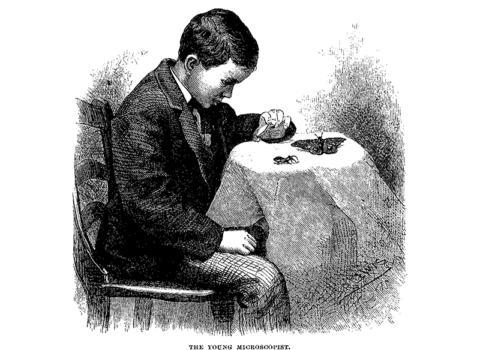The French Fiasco
When the COVID-19 lockdown began, I jokingly told friends that I could take advantage of my dual citizenship to get vaccinated before my fellow Americans at my neighborhood pharmacy in Paris or at the French consulate in New York. Sooner rather than later, I thought, France would be stocked with plenty of vaccines to protect the fortunate descendants of Joan of Arc. After all, it’s only natural to believe that the birthplace of Louis Pasteur would be leading the charge to prevent and treat the virus. Along with its strong tradition of biological research, France had a significant political edge: Emmanuel Macron possesses an intelligence and education up to the task of vaccine distribution, as opposed to the self-centered Donald Trump, who is downright idiotic in his views on science. France’s centralized, interventionist government would have no problem besting a country dominated by states’ rights and capitalist ideologies often blind to the public interest.
But there I was, on March 31, receiving my second shot, not in Paris’s swanky 7th arrondissement or in the elegant halls of the French consulate in Manhattan but in a clinic in the South Bronx, one of the poorest neighborhoods in New York City. What’s more, I was given Moderna, a vaccine developed by an American company. As I left the clinic, I was delighted to see the city coming alive again, even as Paris was sinking back into another depressing lockdown.
What went wrong in France? How did the Trump Administration manage to succeed where France had failed so spectacularly? How can it be that 56 percent of American adults are now vaccinated against COVID-19 compared to 27 percent of French adults? According to the weekly magazine Paris Match, France’s “fiasco” was in large part due to a rivalry between two scientists at the Pasteur Institute, Frédéric Tangy and Nicolas Escriou. Apparently unable to get them to collaborate, the institute ended up betting, wrongly, on Escriou, as well as Merck, an American pharmaceutical giant that had purchased the exclusive license to the vaccine labeled “project V591.” Another theory, espoused by the online magazine Mediapart, blames the failure to produce a vaccine in France on Sanofi, the last officially French pharmaceutical company. Sanofi had declined to purchase V591 and instead pursued its own research, which to date has come to naught, aside from a few grandiose PR statements. According to Mediapart, this catastrophic failure can be attributed to “the rejection of all industrial politics, together with the disappearance of countless skill sets among state actors, 30 years of sacrifices imposed on public research because considered an excessive expenditure, and the entrenched belief that our now private national defenders are far more effective than the state at finding answers.”
Perhaps. But these analyses fail to consider the motivations and ideologies driving current elected officials in France. Some time ago, a well-connected political operative told me that since the Treaty of Maastricht, French politicians have suffered from a lack of ambition and energy, regardless of their political philosophies, because “in the end, Brussels decides.” But one can reasonably wonder what European Commission President Ursula von der Leyen is irksomely “deciding” right now as she squirms in front of the cameras and hospitals continue to overflow. Furious with the United Kingdom, which dared to leave the E.U.—and financed the homegrown Oxford-AstraZeneca vaccine—she doesn’t know which way to turn anymore. How can she be a good “liberal” when Anglo-Saxon “populist-nationalists” and Russian and Chinese dictators—each one more power hungry than the next—control the production of these crucial vaccines? The Wall Street Journal captured the irony best when it reported that, as of mid-March, the E.U. was the top global exporter of COVID-19 vaccines, at 40 million doses, “despite its difficulties procuring and delivering vaccines” for Europeans. Now everything is going sideways for President von der Leyen. A lover of private markets and free trade, she has been reduced to issuing threats, in a rather protectionist tone, against private companies AstraZeneca and Pfizer in order to limit their exports of European-made vaccines to faraway countries.
And what of Macron? Discrediting the British vaccine was a foolish tactic—and far from being sound policy. But Brussels, or rather Berlin, is the lead actor determining the tactics of Élysée bureaucrats these days. Macron’s constant health care policy shake-ups have flummoxed everyone, including President von der Leyen, who seems to want to appear more European than German. On March 15, when France temporarily suspended the AstraZeneca vaccine because of extremely rare occurrences of blood clots, the European Medicines Agency (EMA) was quick to reassure the public that the vaccine posed no danger. But why bother? A source close to the French president told the daily newspaper Les Échos that France wanted to wait until the next EMA meeting before suspending the vaccine, “but Berlin jumped the gun, under internal pressure.” So Berlin decided that more French people (and Germans, Italians, and Spaniards) would die rather than take the AstraZeneca shot—and all because of a four-day suspension—with no regard for European “unity.” And then we wonder why the French are so hesitant to get vaccinated?
Read MacArthur’s remembrance of John Cullen, the former translator of these columns.



